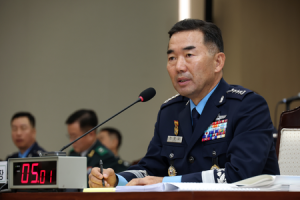Russia may have helped North Korea build new long-range missile: South Korea

Seoul: North Korea has possibly received technological assistance from Russia in developing a new intercontinental ballistic missile (ICBM) that was first showcased during a recent military parade, the chairman of South Korea’s Joint Chiefs of Staff (JCS) said Tuesday.
North Korea unveiled the Hwasong-20 ICBM, which it described as “the most powerful nuclear strategic weapon system,” in a military parade held last week to mark the 80th anniversary of the founding of the ruling Workers’ Party of Korea.
The design of the transporter erector launcher for the Hwasong-20 appeared to be different compared with the previous Hwasong-19 first fired in October last year, raising speculation that the North may have received support from Russia in developing the new long-range missile amid their deepening military alignment.
“I believe there is sufficient possibility,” JCS Chairman Gen. Jin Yong-sung said in a parliamentary audit session, when asked about such a possibility.
Alongside the Hwasong-20 ICBM, the North unveiled an array of weapons ranging from a new hypersonic missile to vehicles designed to launch multiple attack drones.
When asked about the military’s capabilities in responding to the hypersonic missile, Jin said, “The accuracy of interception may slightly falter, but they can be intercepted.”
He acknowledged concerns over the North’s weapons development and said the military will thoroughly prepare to respond to it, adding that further technological verification is necessary for the new weapons systems.
As part of such efforts, the top military officer said the military is seeking to utilise commercial satellites to bolster surveillance capabilities, Yonhap news agency reported.
“I believe it is important to take in information in a short time and in a repeated manner, using not only military reconnaissance satellites but civilian satellites,” Jin said. “We are pushing to do so.”
South Korea launched its first spy satellite in December 2023, equipped with electro-optical and infrared sensors capable of capturing detailed images. It has since launched three more with synthetic aperture radar (SAR) sensors that collect data regardless of weather conditions.
Seoul aims to launch its fifth satellite, which will also be equipped with SAR sensors, later this year. Once all five satellites are placed in orbit, the country is expected to be able to monitor North Korea every two hours.
Orissa POST – Odisha’s No.1 English Daily
News